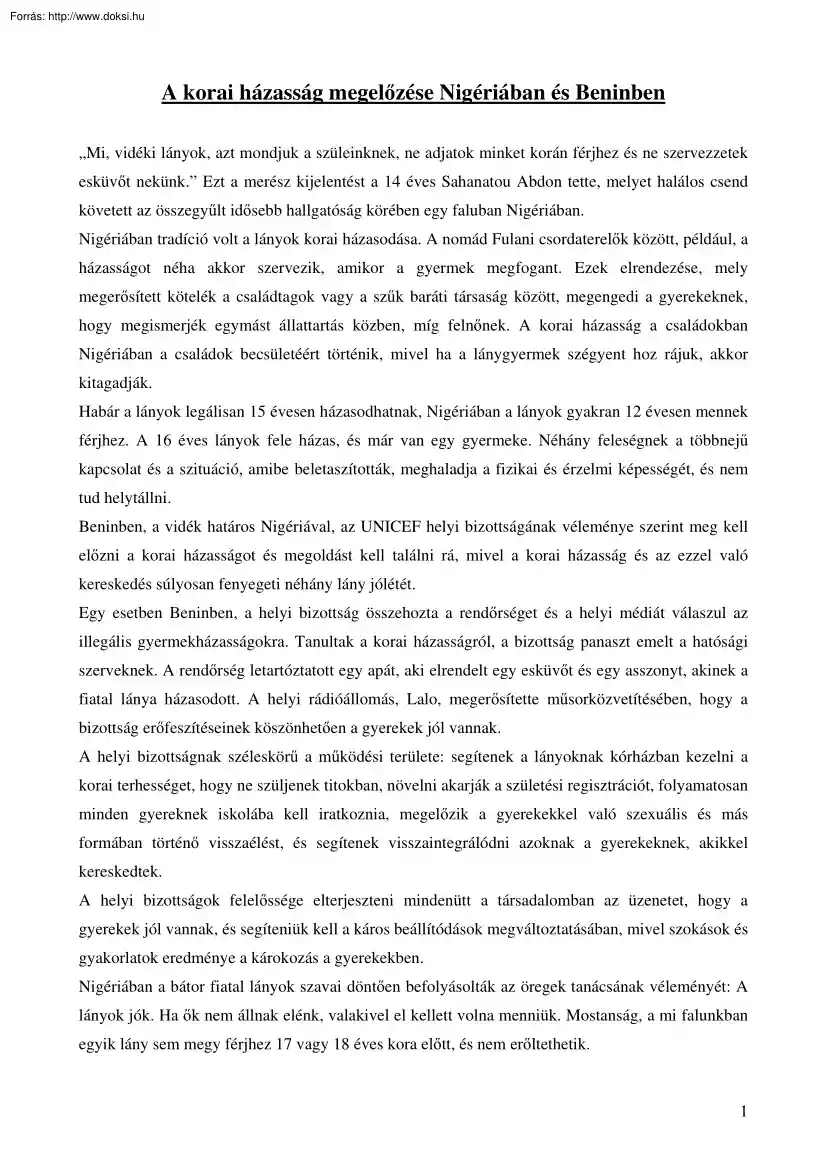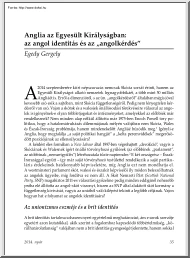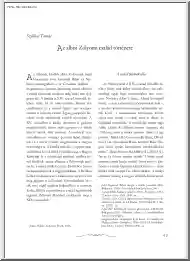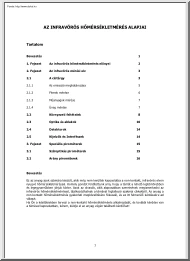A doksi online olvasásához kérlek jelentkezz be!

A doksi online olvasásához kérlek jelentkezz be!
Nincs még értékelés. Legyél Te az első!
Mit olvastak a többiek, ha ezzel végeztek?
Tartalmi kivonat
A korai házasság megelőzése Nigériában és Beninben „Mi, vidéki lányok, azt mondjuk a szüleinknek, ne adjatok minket korán férjhez és ne szervezzetek esküvőt nekünk.” Ezt a merész kijelentést a 14 éves Sahanatou Abdon tette, melyet halálos csend követett az összegyűlt idősebb hallgatóság körében egy faluban Nigériában. Nigériában tradíció volt a lányok korai házasodása. A nomád Fulani csordaterelők között, például, a házasságot néha akkor szervezik, amikor a gyermek megfogant. Ezek elrendezése, mely megerősített kötelék a családtagok vagy a szűk baráti társaság között, megengedi a gyerekeknek, hogy megismerjék egymást állattartás közben, míg felnőnek. A korai házasság a családokban Nigériában a családok becsületéért történik, mivel ha a lánygyermek szégyent hoz rájuk, akkor kitagadják. Habár a lányok legálisan 15 évesen házasodhatnak, Nigériában a lányok gyakran 12 évesen mennek férjhez. A 16
éves lányok fele házas, és már van egy gyermeke Néhány feleségnek a többnejű kapcsolat és a szituáció, amibe beletaszították, meghaladja a fizikai és érzelmi képességét, és nem tud helytállni. Beninben, a vidék határos Nigériával, az UNICEF helyi bizottságának véleménye szerint meg kell előzni a korai házasságot és megoldást kell találni rá, mivel a korai házasság és az ezzel való kereskedés súlyosan fenyegeti néhány lány jólétét. Egy esetben Beninben, a helyi bizottság összehozta a rendőrséget és a helyi médiát válaszul az illegális gyermekházasságokra. Tanultak a korai házasságról, a bizottság panaszt emelt a hatósági szerveknek. A rendőrség letartóztatott egy apát, aki elrendelt egy esküvőt és egy asszonyt, akinek a fiatal lánya házasodott. A helyi rádióállomás, Lalo, megerősítette műsorközvetítésében, hogy a bizottság erőfeszítéseinek köszönhetően a gyerekek jól vannak. A helyi
bizottságnak széleskörű a működési területe: segítenek a lányoknak kórházban kezelni a korai terhességet, hogy ne szüljenek titokban, növelni akarják a születési regisztrációt, folyamatosan minden gyereknek iskolába kell iratkoznia, megelőzik a gyerekekkel való szexuális és más formában történő visszaélést, és segítenek visszaintegrálódni azoknak a gyerekeknek, akikkel kereskedtek. A helyi bizottságok felelőssége elterjeszteni mindenütt a társadalomban az üzenetet, hogy a gyerekek jól vannak, és segíteniük kell a káros beállítódások megváltoztatásában, mivel szokások és gyakorlatok eredménye a károkozás a gyerekekben. Nigériában a bátor fiatal lányok szavai döntően befolyásolták az öregek tanácsának véleményét: A lányok jók. Ha ők nem állnak elénk, valakivel el kellett volna menniük Mostanság, a mi falunkban egyik lány sem megy férjhez 17 vagy 18 éves kora előtt, és nem erőltethetik. 1 Preventing
early marriage in Niger and Benin “We, the girls of this region, ask our parents to not give us in marriage at an early age and to not arrange marriages for us.” This bold statement, made by 14-year-old Sahanatou Abdou, was met with a deathly silence from the assembled audience of elders and peers in a village in Niger. They were stunned by her plea. However, it was one that had to be heard Niger has a tradition of marrying its girls at an early age. Among nomadic Fulani herders, for example, marriages are sometimes arranged for babies still in the womb. These arrangements, which strengthen ties between families or close friends, allow the children to get to know each other as they grow up herding animals together. Another reason for this tradition is that families feel pregnancies out of wedlock are shameful and they do not want their daughters to bring them dishonour. Early marriage for families in Niger is a matter of family honour Although the legal age for marriage for girls
is 15, girls in Niger are often married at the age of 12. By the time they are 16, half the girls are married and have had their first child. They might be one of several wives in a polygamous relationship and are thrust into situations beyond their physical and emotional ability to cope. Changing the status quo has to start with changing attitudes and beliefs that may have been held for as long as people can remember. In Benin, a country bordering with Niger, UNICEF supports local committees to prevent and respond to early marriage where early marriage and trafficking are serious threats to many girls well being. In one such case in Benin, the village committee cooperated with the police and the local media to respond to an illegal child marriage. Upon learning of the early marriage, the committee lodged a complaint with the authorities. The police arrested the father who arranged the marriage and husband to whom the young girl was married. The regional radio station, Lalo, reinforced
the committee’s efforts by broadcasting programmes on children’s rights. The village committee conducts a wide range of activities: helping girls attend maternity hospitals to have safe births in cases of early pregnancy; raising awareness of the need for birth registration; enroling and keeping all children in school; preventing sexual and all other forms of child abuse; and helping reintegrate children who have been trafficked. It is the village committee’s responsibility to spread messages on children’s rights throughout the community and help change harmful attitudes, customs and practices that result in harm to children. In Niger, the brave young girls’ words were met with crucial support from a member of the committee of elders. “The girls are right If this is what they expect from us, we’ll go along with them. From now on, none of the girls in our villages will be given in marriage before the age of 17 or 18, and no girl will be forced into marriage.” 2
éves lányok fele házas, és már van egy gyermeke Néhány feleségnek a többnejű kapcsolat és a szituáció, amibe beletaszították, meghaladja a fizikai és érzelmi képességét, és nem tud helytállni. Beninben, a vidék határos Nigériával, az UNICEF helyi bizottságának véleménye szerint meg kell előzni a korai házasságot és megoldást kell találni rá, mivel a korai házasság és az ezzel való kereskedés súlyosan fenyegeti néhány lány jólétét. Egy esetben Beninben, a helyi bizottság összehozta a rendőrséget és a helyi médiát válaszul az illegális gyermekházasságokra. Tanultak a korai házasságról, a bizottság panaszt emelt a hatósági szerveknek. A rendőrség letartóztatott egy apát, aki elrendelt egy esküvőt és egy asszonyt, akinek a fiatal lánya házasodott. A helyi rádióállomás, Lalo, megerősítette műsorközvetítésében, hogy a bizottság erőfeszítéseinek köszönhetően a gyerekek jól vannak. A helyi
bizottságnak széleskörű a működési területe: segítenek a lányoknak kórházban kezelni a korai terhességet, hogy ne szüljenek titokban, növelni akarják a születési regisztrációt, folyamatosan minden gyereknek iskolába kell iratkoznia, megelőzik a gyerekekkel való szexuális és más formában történő visszaélést, és segítenek visszaintegrálódni azoknak a gyerekeknek, akikkel kereskedtek. A helyi bizottságok felelőssége elterjeszteni mindenütt a társadalomban az üzenetet, hogy a gyerekek jól vannak, és segíteniük kell a káros beállítódások megváltoztatásában, mivel szokások és gyakorlatok eredménye a károkozás a gyerekekben. Nigériában a bátor fiatal lányok szavai döntően befolyásolták az öregek tanácsának véleményét: A lányok jók. Ha ők nem állnak elénk, valakivel el kellett volna menniük Mostanság, a mi falunkban egyik lány sem megy férjhez 17 vagy 18 éves kora előtt, és nem erőltethetik. 1 Preventing
early marriage in Niger and Benin “We, the girls of this region, ask our parents to not give us in marriage at an early age and to not arrange marriages for us.” This bold statement, made by 14-year-old Sahanatou Abdou, was met with a deathly silence from the assembled audience of elders and peers in a village in Niger. They were stunned by her plea. However, it was one that had to be heard Niger has a tradition of marrying its girls at an early age. Among nomadic Fulani herders, for example, marriages are sometimes arranged for babies still in the womb. These arrangements, which strengthen ties between families or close friends, allow the children to get to know each other as they grow up herding animals together. Another reason for this tradition is that families feel pregnancies out of wedlock are shameful and they do not want their daughters to bring them dishonour. Early marriage for families in Niger is a matter of family honour Although the legal age for marriage for girls
is 15, girls in Niger are often married at the age of 12. By the time they are 16, half the girls are married and have had their first child. They might be one of several wives in a polygamous relationship and are thrust into situations beyond their physical and emotional ability to cope. Changing the status quo has to start with changing attitudes and beliefs that may have been held for as long as people can remember. In Benin, a country bordering with Niger, UNICEF supports local committees to prevent and respond to early marriage where early marriage and trafficking are serious threats to many girls well being. In one such case in Benin, the village committee cooperated with the police and the local media to respond to an illegal child marriage. Upon learning of the early marriage, the committee lodged a complaint with the authorities. The police arrested the father who arranged the marriage and husband to whom the young girl was married. The regional radio station, Lalo, reinforced
the committee’s efforts by broadcasting programmes on children’s rights. The village committee conducts a wide range of activities: helping girls attend maternity hospitals to have safe births in cases of early pregnancy; raising awareness of the need for birth registration; enroling and keeping all children in school; preventing sexual and all other forms of child abuse; and helping reintegrate children who have been trafficked. It is the village committee’s responsibility to spread messages on children’s rights throughout the community and help change harmful attitudes, customs and practices that result in harm to children. In Niger, the brave young girls’ words were met with crucial support from a member of the committee of elders. “The girls are right If this is what they expect from us, we’ll go along with them. From now on, none of the girls in our villages will be given in marriage before the age of 17 or 18, and no girl will be forced into marriage.” 2




